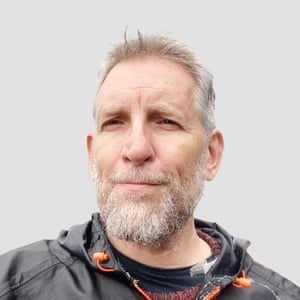Key Outcomes
Damian Carrington
Here’s a summary of the key outcomes of Cop30:
-
Perhaps most of all, while getting close to collapse, the talks delivered a deal, showing multilateral cooperation between 194 states can work even in a world in geopolitical turmoil.
-
Nations agreed to tripled funding for adaptation – the money provided by rich nations and desperately needed by vulnerable countries to protect their people – but the goal of roughly $120bn a year was pushed back five years to 2035.
-
Fossil fuels were not mentioned in the key final decision – petrostates including Saudi Arabia and allies fought fiercely to keep that out.
-
A commitment to a roadmap to transition away from fossil fuels was not part of the formal deal in Belém, but Brazil backed an initiative outside the UN process, building on plan backed by Colombia and about 90 other nations.
-
There was a similar roadmap to end deforestation, also backed by about 90 nations. Cop30 was deliberately sited in the Amazon and the lack of significant measures in the key Cop30 text is a disappointment.
-
However, Brazil did launch the Tropical Forests Forever Facility, again outside the UN process, but an investment fund that will pay nations to keep trees standing.
-
A big outcome, welcomed by civil society, was the agreement of a Just Transition Mechanism, a plan agreed by all nations to ensure that the move to a green economy around the world takes place fairly and protects the rights of all people, including workers, women and indigenous people. Efforts early in the talks to attach funding to it failed.
-
Pressure to address the huge gap between the emissions cuts pledged by nations and those needed to keep the overshoot of 1.5C to a minimum ended with weaker measures than progressive nations wanted – an “accelerator” programme to address the shortfall which will report back at next year’s Cop.
Key events
Panama has also hit back on Russian comments comparing the behaviour of Latin American countries to that of children.
“Children are extremely intelligent and visionary. And as the region, we will continue pushing for transformative decisions. We wish we’d all behave like children to work for a better future – instead of [like] futureless adults.”
India, on behalf of the BASIC countries group (Brazil, South Africa, India, and China), has praised the Cop Presidency – one of the rare voices of support in what appears to be a rather tense plenary session.
“We look forward to working closely to ensure today’s outcome takes us in the right direction for climate action.”
The intervention comes after some heated comments – including one pointed intervention from Russia, delivered in Spanish, that appeared to aggravate some Latin American delegates – and a number of criticisms of the Presidency before Do Lago suspended the proceedings.
The plenary has resumed after “extensive consultations” and Do Lago has confirmed that the decisions that were gavelled through earlier tonight have been adopted – despite objections from Colombia and others who had raised objections and said their requests to speak had been ignored.
“I deeply regret I was not made aware of the requests of the Parties to take the floor,” said Do Lago. “[Like] many of you, I have not slept and probably this has not helped – as well as my advanced age.”
Plenary revolt forces suspension

Jonathan Watts
Brazil’s Cop30 presidency has had to suspend plenary discussions after a revolt from delegates who complain documents are being “gavelled” through without agreement.
So far half a dozen negotiators, including the European Union, Colombia, Panama and Switzerland, have refused to accept texts, saying Cop president André Correa do Lago brought down the hammer without recognition of their requests to be heard.
The Cop30 president tried to deal with the first few voices of dissent by saying they would be included in the final report. When the list grew, he admitted, “I am sorry I haven’t seen the flags.”
Finally, he was forced to suspend the session, after multiple fierce challenges from Colombia, including a potentially “dynamite” objection to the mitigation work programme. After this, the presidency entered into closed consultations.
Colombia, which has been pushing hard for more ambition to transition away from fossil fuels throughout this COP, said it was frustrated that language previously agreed by consensus is now being vetoed. Its delegate said that Colombia “wanted to move forward… based on science… with Indigenous people, with peasants and with campesinos [peasant farmers]… but we feel we can’t.”

Damian Carrington
The final Cop30 text included an added reference to the “UAE consensus”, seen by some as an oblique way to reference fossil fuels. All nations agreed in UAE at Cop28 in 2023 to “transition away from fossil fuels”. The earlier text had no references at all.
But Cop expert Dr Joanna Depledge, at Cambridge University, said the added reference was a rollback:
“The reference to ‘the United Arab Emirates Consensus’ in the text is not a win, it is a rollback. This is because the UAE Consensus is [wider than the specific] decision taken in Dubai which included the historic language on transitioning away from fossil fuels. The UAE Consensus is a much broader package, including fully eight decisions adopted in Dubai on a whole range of issues. The Dubai fossil fuel transition language is therefore being deliberately diluted and obscured, not highlighted.”
The plenary session has been suspended after angry objections from Colombia and others. More to come…

Jonathan Watts
The biggest cheers so far of the closing plenary were for the Brazilian presidency’s promises to take forward the idea of a roadmap for an end of deforestation and a phase out of fossil fuels.
André Correa do Lago said this was an important issue that must move forward even though there had not been a consensus at Cop30.
“Youth and civil society will demand us to do more to fight climate change. I will try not to disappoint you during my presidency,” he said. “I will create two roadmaps; one on halting and reversing deforestation and the other to transition away from fossil fuels in a just, orderly and equitable manner.”
This is a voluntary action, but under the yearlong Brazilian presidency it will have a heightened global prominence.
Correa do Lago said the roadmap has the support of President Lula of Brazil. He said the Cop30 presidency would organise high-level dialogues over the coming 12 months that will be lead by science and involve governments, industry and civil society. Once complete, he said they would report back to COP.
He said these discussions would benefit from a planned first conference on the phase out of fossil fuels scheduled to take place in Colombia next April.
Key Outcomes

Damian Carrington
Here’s a summary of the key outcomes of Cop30:
-
Perhaps most of all, while getting close to collapse, the talks delivered a deal, showing multilateral cooperation between 194 states can work even in a world in geopolitical turmoil.
-
Nations agreed to tripled funding for adaptation – the money provided by rich nations and desperately needed by vulnerable countries to protect their people – but the goal of roughly $120bn a year was pushed back five years to 2035.
-
Fossil fuels were not mentioned in the key final decision – petrostates including Saudi Arabia and allies fought fiercely to keep that out.
-
A commitment to a roadmap to transition away from fossil fuels was not part of the formal deal in Belém, but Brazil backed an initiative outside the UN process, building on plan backed by Colombia and about 90 other nations.
-
There was a similar roadmap to end deforestation, also backed by about 90 nations. Cop30 was deliberately sited in the Amazon and the lack of significant measures in the key Cop30 text is a disappointment.
-
However, Brazil did launch the Tropical Forests Forever Facility, again outside the UN process, but an investment fund that will pay nations to keep trees standing.
-
A big outcome, welcomed by civil society, was the agreement of a Just Transition Mechanism, a plan agreed by all nations to ensure that the move to a green economy around the world takes place fairly and protects the rights of all people, including workers, women and indigenous people. Efforts early in the talks to attach funding to it failed.
-
Pressure to address the huge gap between the emissions cuts pledged by nations and those needed to keep the overshoot of 1.5C to a minimum ended with weaker measures than progressive nations wanted – an “accelerator” programme to address the shortfall which will report back at next year’s Cop.
Canada echoed the concerns of the EU and Switzerland on the global goal on adaptation, and asked the Presidency to address points of order raised by Panama and Uruguay. It also expressed “strong concerns” that the text across three agenda items conflate the rights of Indigenous peoples with local communities – in a manner that is inconsistent with the UN declaration on the rights of Indigenous peoples.
“This Cop in the Amazon cannot be seen to adaopt outcomes that walk back the important progress and breakthroughs in recognising the rights of Indigenous peoples and their climate leadership.”
Sierra Leone said it would work to evolve the framework of the global goal on adaptation till it meets it needs.
“We must ask ourselves, how are we helping the most vulnerable if this is the quality of the outcomes we call ambition? What message does it send when a process built to elevate our needs ends by diminishing expert work and overlooking the realities of those on the frontlines.”

Damian Carrington
Mohamed Adow, Director, Power Shift Africa, said: “With an increasingly fractured geopolitical backdrop, Cop30 gave us some baby steps in the right direction, but considering the scale of the climate crisis, it has failed to rise to the occasion.
“Despite calling themselves climate leaders, developed countries have betrayed vulnerable nations by both failing to deliver science-aligned national emission reduction plans
“COP30 was supposed to have a big focus on raising funds to help vulnerable nations adapt to climate change. But European nations have undermined these talks and stripped away the protections poor countries were seeking in Belem.
“Europe, which colonised much of the global south, and then imperilled it further through its industrialised carbon emissions, now works against even efforts to help it adapt to the climate crisis.”
Natalie Unterstell, president of Instituto Talanoa in Brazil, said: “The pledge to triple adaptation finance is welcome, as it answers the call of the least developed countries and a global coalition. But moving the goalpost to 2035 dilutes ambition. Adaptation can’t wait, especially as the finance for developing nations has been decreasing while climate impacts accelerate.”
The European Union has also said it cannot accept the global goal on adaptation in its current form, arguing that the indicators are unclear and cannot be used for the main purpose, and that they were not in line with articles in previous climate agreements. “We will share our targeted changes in writing but I’m afraid we join others in not being able to support these indicators at this moment.”
Switzerland has also criticised the global goal on adaptation, highlighting the lack of time to discuss the final text and the use of indicators not selected directly from the technical expert list.
Panama has laid into the Cop Presidency for not delivering the transparent process that was promised. “I raise my flag and you ignore it. I raise a point of order and you ignore it. I sustain it, and it keeps being ignored.”
On the substance, Panama said it could not endorse an outcome for the global goal on adaptation that “takes us backwards”. The delegate complained that months and years, of expert work had been replaced by placeholders.
The first countries to speak, Argentina and then Chile, have pushed backs on parts of what was just agreed, with Chile criticising the negotiation of already-agreed procedures – “this frustrates us, deeply.”

Damian Carrington
“I know some of you had higher ambitions,” said Do Lago. “I know youth and civil society will demand we do more.” He said he would drive to do that in his year at Cop30 president.
He then announced two road maps, one to end deforestation and one to transition away from fossil fuels. However, these are not part of the UN process, and therefore not backed by all 195 countries. Nonetheless, with around 90 countries backing both, there is hope they could help push forward action.
The deal has been gavelled through
Cop President André Corrêa do Lago has just gavelled through the deal after a night of long negotiations that has left many countries unhappy. The hammer went down on a series of major agreements without country discussions in the final plenary. More to follow in minutes…








